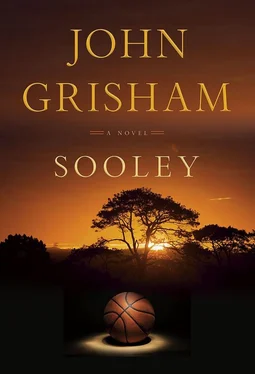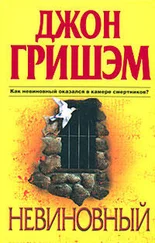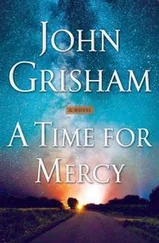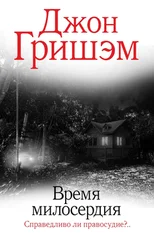He sat next to Samuel on the flight to Washington and talked about the future. Ecko was of the firm opinion that Samuel should stay in America and apply for citizenship, but that plan raised more questions than he could answer. He would seek advice from their embassy in Washington.
Samuel was overwhelmed by thoughts of staying.
Ecko repeatedly reminded him that he could not go home because there was no home. Ecko had friends in Juba but they were in no position to adopt an eighteen-year-old kid. Samuel could not think of a single relative who could take him. All of his extended family lived in Lotta. And that was where he was going, to find them.
Ecko showed him a list of a dozen NGOs and relief organizations working in the refugee camps, both inside South Sudan and in neighboring countries. He promised to contact all of them, and to hound them until he found someone who knew the Sooleymon family. If they survived, they would eventually make it to a camp, he was certain of that. Once they were found, he would try to arrange a trip for Samuel to go see them. But it would take time. Going back now would be dangerous and unproductive.
At Reagan National, Ecko rented two white vans that were remarkably similar to the two they had used in Orlando. Their hotel was in McLean, near an interstate. They checked in and the players went to the pool.
Lonnie Britt had resisted the suggestion that he make the four-hour drive from Durham to Washington, but Ecko had insisted. The two old friends talked for an hour as Lonnie fought the traffic on Interstate 95. By the time he arrived in McLean, he knew he had just landed another basketball player, one that no one else was looking at.
Lonnie had dinner with the team and tried to cheer them up. They were tough kids, resilient and still hopeful, but they were crushed by their elimination. They knew they were as good as any team they had played, and to be going home with nothing was so disheartening. Of the nine who would make the long flight to Juba, only three — Alek Garang, Quinton Majok, and Riak Kuol — had a chance of playing in college. Had the team advanced to the national showcase, perhaps two or three others could have been noticed.
Afterward, Ecko asked Samuel to stop by his room. Lonnie was waiting and offered his sincere condolences. Samuel thanked him but said little. However, his demeanor changed when Lonnie said, “Samuel, I want you to come play for me at North Carolina Central. I’m offering you a full scholarship to come play for the Eagles.”
Samuel was speechless and looked at Ecko in disbelief.
Lonnie said, “I’ve seen you play and I’m impressed with your game. Ecko says great things about you and he’s convinced me to take a chance. What do you say?”
“I don’t know. I can’t think of anything right now. Thanks, I guess.”
Ecko moved in for the kill. “Here’s the deal, Samuel. We’re going to the embassy tomorrow to talk about immigration. Lonnie’s going with us and we’ll explain that you’ll be staying here and headed down to Durham. We’ll ask the embassy to pull strings and help expedite a student visa.”
Samuel shook his head and said, “Thanks, Coach, but I need to go home and find my family. They’re alive and they need me.”
Ecko said, “Listen to me, Samuel.”
“Maybe not all of them, but I just know that my mother is alive and she needs me right now.”
“We’ll find them, Samuel, but you can’t do it by yourself. Right now we have no idea where they are. The village is gone and Rumbek is not safe. What good will it do your family if you get killed too?”
Lonnie said, “We’ll do everything we can to help you find them, Samuel, I promise, but for now, play it safe. Come to Durham with me. You can stay in my house, with my family, until classes start. Then you’ll move into a nice dormitory and meet all your new friends. They’re a great bunch of guys, Samuel, and they’ll be glad to meet you.”
“But I don’t have a dime. How am I supposed to go to college?”
Ecko said, “Let me worry about that. Your scholarship covers tuition, room, board, and books. Coach Britt can find you a job. We’ll make it happen.”
He buried his face in his hands and managed to say, “Thank you.”
The camp was between two small hills that cradled a narrow creek. Bunched along its banks were dozens of makeshift tents and lean-tos made of stripped branches and dried scrub. Smoke from two fires drifted upward and at first gave them hope that food was being prepared. The creek bed was dry but there were pools of muddy water. Women and children shuffled about with little to do.
Emmanuel told them to wait under the shade of some trees as he left to scope out the camp. He disappeared down a trail and as he approached the settlement he was stopped by two men blocking the trail. “What do you want?” one of them asked. Both were armed, one with a club, the other with a machete.
Emmanuel said, “I have women and children with me. We’re from the village of Lotta and we were attacked.”
“You can’t stay here,” said the man with the club.
“Please. We are starving and need water. We’ve been walking for two days and nights.”
“You can’t stay here. There’s no food and the water is almost gone.”
“Please. We’re dying. There are children.”
“We’re all dying. And the farmers have told us to leave. We’re using their water and they are not happy about it. They have threatened to call soldiers to clear the camp.”
“But we can’t keep going. Please help us.”
“There is no room for you here and it’s too dangerous.”
“You have no choice,” said the man with the machete.
“Please. Just some water and something to eat.”
The men looked at each other. The one with the club tossed it aside and disappeared. The other one said, “Just wait.”
“How long have you been here?” Emmanuel asked.
“About a month. Most of us are from the village of Ranya. Where are you from?”
“Lotta. It was burned Sunday night by the rebels.”
“They burned our village too. We’ve been here but now we have to go. The farmers are very angry and do not want us on their land.”
“When will you leave?”
“Tomorrow.”
“Where will you go?”
He shook his head as if he had no idea.
The other man returned with a bucket of water and a cloth bag filled with something. They followed Emmanuel up the trail to the trees where Beatrice and her group waited. One of the men said, “I’m sorry but you cannot stay here. It’s too dangerous.” He put down the bucket and held a small wooden ladle. “The water is dirty but we’ve been drinking it. We have no choice.” As he gave each person a few ounces of the brownish liquid, the other one opened the bag and began handing out fistfuls of raw peanuts.
The water was wretched but it quenched their thirst. The peanuts tasted like chocolate candy. “Eat slow,” Beatrice whispered to James and Chol. “Make it last.”
But they couldn’t eat slow.
The two vans stopped near the Lincoln Memorial and the team got out. Frankie gave them instructions and left to find a place to park. The boys were soon lost in a throng of tourists visiting Abe and milling around the Reflecting Pool.
Ecko drove Samuel and Lonnie to the embassy of the Republic of South Sudan on 31st Street near the Naval Observatory. Their ten o’clock appointment was with a Ms. Maria Manabol, a pleasant young lady Ecko had spoken to three times already. She met them in a small conference room and offered them coffee. After a round of chitchat, during which she expressed her condolences to Samuel for the tragedy, and managed to get in a word or two about the basketball team, she asked Ecko and Lonnie to step into the hallway. They left Samuel at the table and followed her to an office. She closed the door and motioned for them to have a seat. She began with, “My father was a government soldier who was killed in the war when I was a little girl, so I know what he’s going through. Luckily, I had an uncle here in the States and he sent for me and my brother. I’m very sorry.”
Читать дальше












